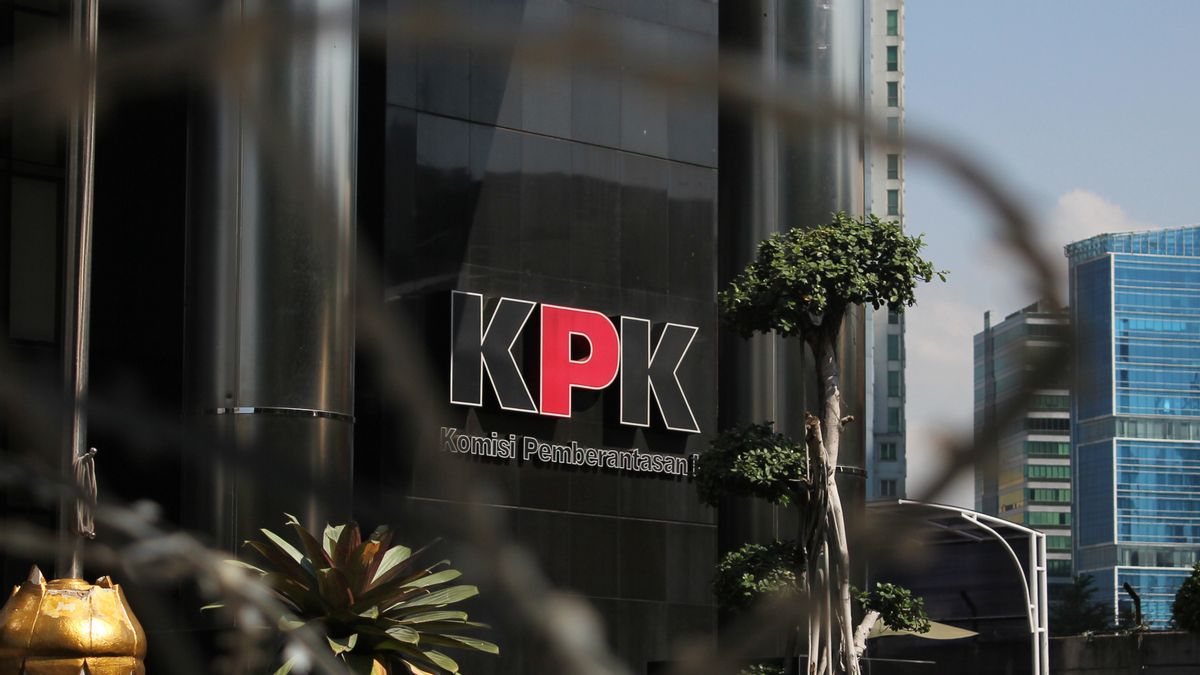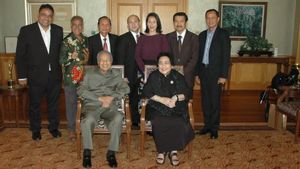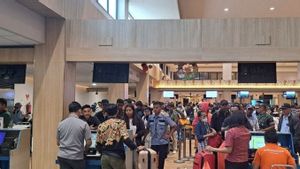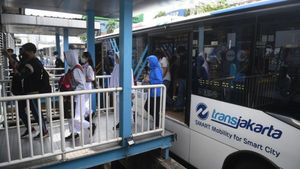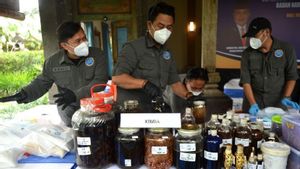JAKARTA - The Corruption Eradication Commission of the Republic of Indonesia or commonly abbreviated as the KPK, is a state institution formed with the aim of increasing the effectiveness and efficiency of efforts to eradicate corruption.
KPK in Indonesia is tasked with preventing and eradicating criminal acts of corruption. KPK is independent in carrying out its duties. The KPK was founded under the Law of the Republic of Indonesia of 2002.
Reporting from wikipedia, there are several tasks and functions of the Corruption Eradication Commission. Among others:
- Coordination with agencies authorized to eradicate criminal acts of corruption;
- Supervision of agencies authorized to eradicate criminal acts of corruption;
- Conducting investigations, investigations and prosecutions of criminal acts of corruption;
- Take measures to prevent criminal acts of corruption; and
- Monitor state governance.
Then, in carrying out coordination tasks, the Corruption Eradication Commission has the authority to, among others:
- Coordinating investigations, investigations and prosecutions of criminal acts of corruption;
- Establishing a reporting system for corruption eradication activities;
- Requesting information about corruption eradication activities from the relevant agencies;
- Conducting hearings or meetings with agencies authorized to eradicate corruption crimes; and
- Request reports from related agencies regarding the prevention of corruption.
History of the Establishment of the KPKThe KPK was not formed to take over the task of eradicating corruption from the existing legal institutions. KPK as a stimulus for efforts to eradicate corruption in Indonesia.
The forerunner of the KPK began during the reform era in 1999, the birth of Law Number 28 of 1999 concerning State Administrators who are Clean and Free from KKN and Law Number 31 of 1999.
Then in 2001, Law No. 20 of 2001 was finally born as a substitute and complement to Law No. 31 of 1999. With Law No. 20 of 2001, the KPK was formed.
Furthermore, on December 27, 2002, Law No. 30 of 2002 on the Corruption Eradication Commission was issued. With the birth of the KPK, the eradication of corruption in Indonesia will experience a new chapter.
Not only that, in 2019 a revision of the Corruption Eradication Law was carried out into Law Number 19 of 2019 concerning the second amendment to Law Number 30 of 2002.
In carrying out its duties, the KPK is guided by five principles, including:
- Principles of Legal Certainty. This principle prioritizes the basis of legislation, propriety and justice in every obligation of state administrators.
-As of Openness. This principle is what opens itself up to the public's right to obtain true, honest, and non-discriminatory information about state administration.
This still takes into account the protection of personal rights, class and state secrets.
-Asas Accountability. This principle determines that every activity and the final result of state administration activities must be accountable to the public.
- Principle of public interest. This principle is to prioritize the general welfare in an aspirational, accommodating, and selective way.
- The principle of proportionality. This principle emphasizes the balance between rights and obligations. The responsibility of the KPK to the public and must submit its reports openly and periodically to the president, the House of Representatives (DPR) and the Financial Audit Board (BPK).
12 ministers who are suspects at the KPKSince its establishment, many officials have become KPK patients. There are even 12 ministers who have become suspects at the KPK. The details are 4 ministers in the era of President Megawati Soekarnoputri, 6 ministers in the era of President Susilo Bambang Yudhoyono (SBY) and 4 ministers in the era of President Joko Widodo.
Era of Megawati Soekarnoputri- Rokhmin Dahuri- Achmad Sujudi
- Sabarno Day
- Bachtiar Chamsyah
Era Susilo Bambang Yudhoyono (SBY) - Siti Fadilah Supari- Andi Mallarangeng- Suryadharma Ali- Jero Wacik
The era of Joko Widodo- Idrus Marham- Imam Nahrawi- Edhy Prabowo, and- Juliari Batubara
The English, Chinese, Japanese, Arabic, and French versions are automatically generated by the AI. So there may still be inaccuracies in translating, please always see Indonesian as our main language. (system supported by DigitalSiber.id)
